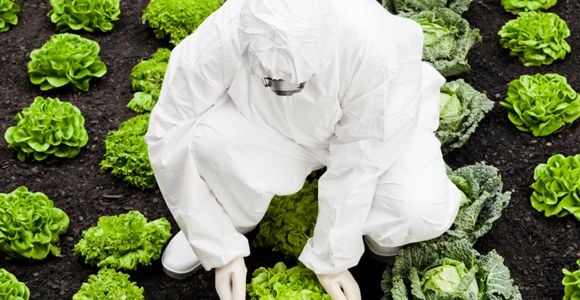Genetically modified foods, commonly referred to as GMOs, have been in the news quite a bit lately. Earlier this month, Californians rejected a ballot measure that would have required labeling of GMOs. Opponents, which included Pepsi, Coca-Cola, Monsanto, Kraft and other large food and biotech companies, spent $45 million on a deceptive campaign to defeat the measure. The small agencies that supported the measure were outspent five to one and the measure failed 53.1 percent to 46.9 percent.
What are GMOs?
Biotechnology has used the relatively new science of gene sequencing to modify genes in plants to introduce desirable characteristics. The genes, which come from microorganisms such as viruses and bacteria, are inserted into DNA. Among plants, genes have been introduced for insecticide purposes, virus resistance, and/or herbicide tolerance. The benefits of these modifications are larger, less expensive crop yields that conceivably translate to a decrease in world hunger and a cheaper food supply for the general public.
Although GMO plant foods are ubiquitous in the U.S. food supply, the same cannot be said of GMO animal products. These are currently not approved by the FDA although much research is being done in this area. The same methods used in plants may be used to engineer animals to be resistant to illness, grow to maturity more quickly, or produce more meat or milk per animal.
Why Have GMOs Come Under Scrutiny?
The short answer to that question is that all the data isn't yet in on these substances. Studies have been done that show no ill health effects. These studies have convinced the FDA of their safety. In the European Union, however, a moratorium has been put on approval of any GMOs since 1995 due to many food related public health scares. Other studies have shown, however, a link between GMOs and certain diseases. It is difficult to design a study that covers these substances in all of the different circumstances under which they are consumed and over long periods of time. The argument against GMOs is that although these foods seem to be relatively safe in small amounts over short periods of time, we do not yet know their health impact when taken in large amounts of extended periods of time.
The Label Issue
Foods in the U.S. are labeled with warnings when they are made on equipment that processes peanuts. Anytime a product contains an artificial sweetener, or a natural sweetener for that matter, the consumer can easily identify that on the label. Products are labeled in this manner to protect and inform the public. Labeling also allows health implications of foods to be studied because if problems arise, they can be reported and links can be established. There are benefits in creating foods that can be produced cheaply to feed the world's population. Progress like GMO foods help stop hunger and improve the health of large parts of the population. Labeling these foods doesn't change that progress. It simply allows consumers to make their own decisions while also helping research follow the long term implications of these products on the environment and the population.
Jennifer Webb, MS, RD, CNSC is a practicing dietitian and freelance writer based out of Southern California. She has been practicing medical nutrition therapy for the past five years. Prior to her career in nutrition, she received a degree in early childhood development. She has combined her two passions, nutrition and family, into a career educating people about the impact food can have on health across the lifespan. She is currently a dietitian at a top children's hospital and runs a private practice. Her private practice specializes in family nutrition therapy, a technique that focuses on changing family habits to lead them to lifelong healthy lifestyles. Contact Jennifer at [email protected].



